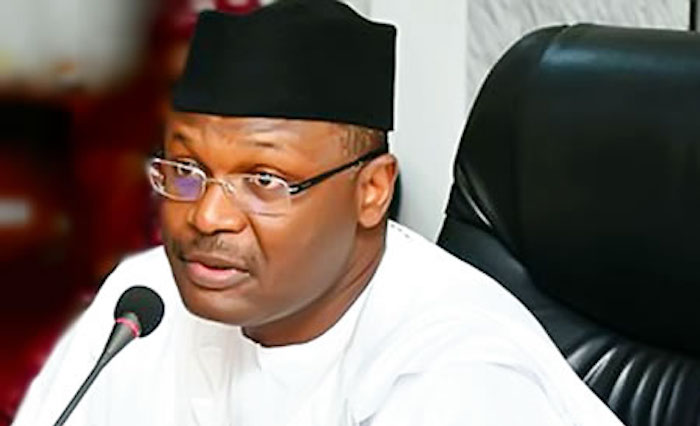According to the Independent National Electoral Commission (INEC), reconfiguration of the Bimodal Voter Registration Systems (BVAS) would be finished by Tuesday in preparation for the March 18 gubernatorial and state assembly elections.
Monday’s episode of Channels Television’s Sunday Politics featured an interview with Festus Okoye, the commission’s National Commissioner for publicity and voter education.
He also stated that the results of more than 170,000 polling stations for the presidential and National Assembly elections held on February 25 have been published to its Result Viewing Portal (IReV).
No political party, according to Okoye, will be permitted access to the Bimodal Voter Registration Systems utilized for voter accreditation and electronic transmission of votes.
“As you are aware, we are reconfiguring the BVAS for the governorship and state assembly elections; however, any BVAS used for the presidential and National Assembly elections that does not push to the accreditation backend will not have its data related to the conduct of the presidential and National Assembly elections reconfigured.
“In actuality, the BVAS will not permit reconfiguration or reset if the whole data set is not pushed to the accreditation backend.
“By Tuesday, when we anticipate completing the resettling of the BVAS for the purposes of the gubernatorial and state assembly elections, I’m confident that all election results will have been pushed to the accreditation backend from all polling locations.”
Every Nigerian has the constitutional and legal right to demonstrate, according to Okoye. Nonetheless, he stated that no political party will be permitted to examine the BVAS’s or voters’ biometrics.
He stated that INEC is the regulator of political parties and that the commission will not abandon its primary job to disgruntled political groups.
He stated that the court’s ruling allowing people to vote with their temporary voter IDs does not apply to all Nigerians, but just to those who went to court.
The INEC commissioner also accused political parties for making polling stations “inaccessible” to voters, which led to a low voter turnout in the most recent election.
He stated that the lessons learnt from the presidential and National Assembly elections would be used to the gubernatorial and state legislature elections.
He stated that substantial efforts are being made to resolve issues with the IReV portal prior to the 18 March elections, and that the ICT department of the commission knows what to do if there are problems with the uploading of polling unit results to the IReV portal during the 18 March elections.
According to him, political parties deployed a greater number of polling unit agents than the Commission did, thus they checked their results per polling unit.
The INEC commissioner stated, “The Electoral Act of 2022 makes it plain that registered political parties and their candidates have the right to send agents to all polling stations in Nigeria. As a political party, the PDP employed 176,588 polling agents. The Labour Party employed 134,874 polling agents in all. The NNPP fielded 176,200 troops while the APC deployed 176,223 troops.
“The commission was deployed at 176,658 polling places. Hence, the political parties dispatched a greater number of agents to polling places than the number of polling places that opened. This means that each political party received a copy of Form EC 8, the polling unit result sheet, which was uploaded to the IReV website.
